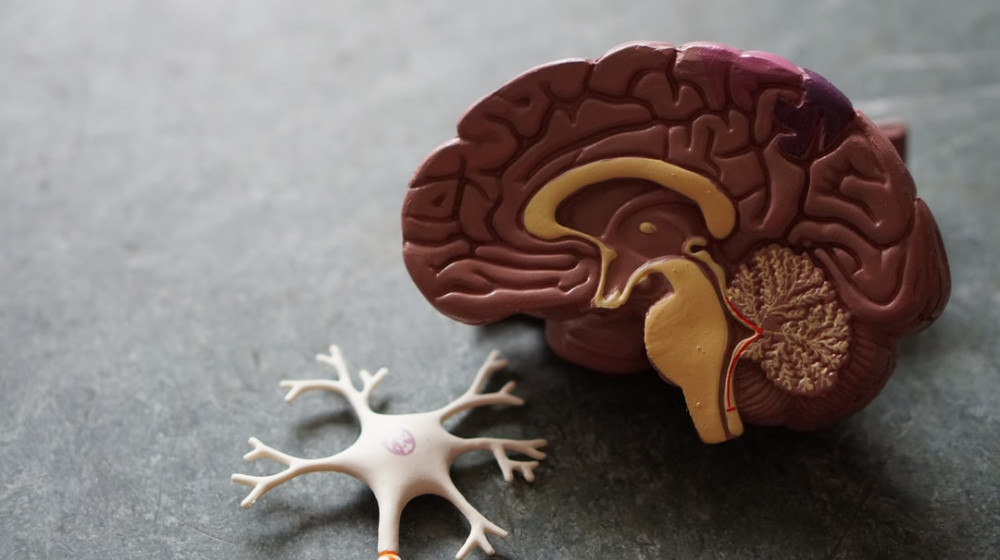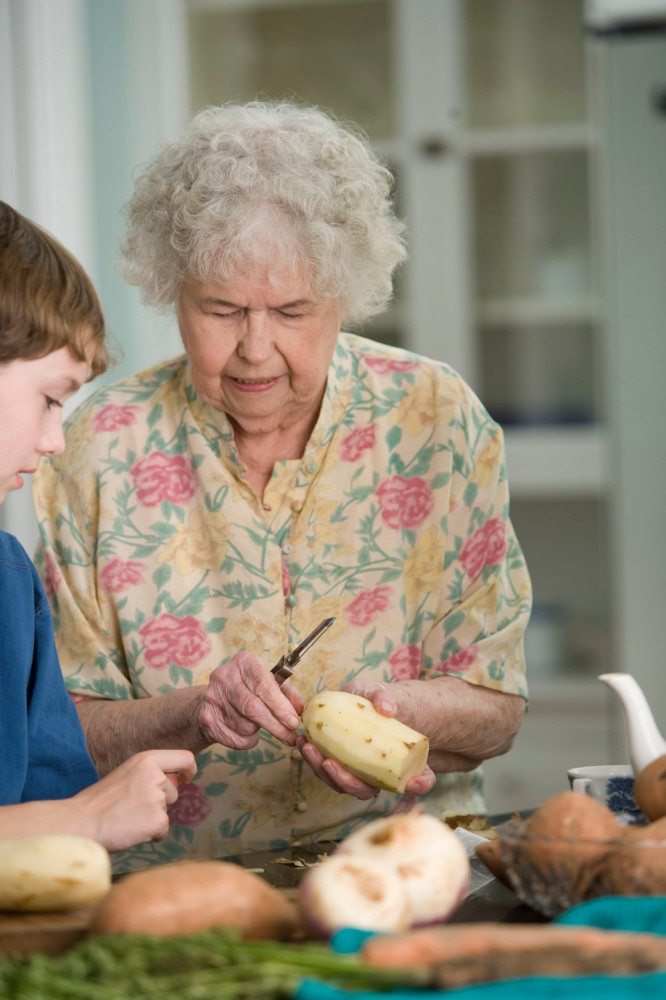Contents
Finding Hope in Dementia and Brain Changes
Understanding dementia and brain changes, including cognition, aging, and dementia helps families providing care for loved ones
Our brains change as we age. A baby’s brain builds capacity at an amazing rate. As adults, we continue to learn and build memories.
 However, as we age, so also does our brain age. This causes the brain to shrink, though not all must be lost. According to Medical News Today, some people retain sharp brain skills into their 80’s and often beyond.
However, as we age, so also does our brain age. This causes the brain to shrink, though not all must be lost. According to Medical News Today, some people retain sharp brain skills into their 80’s and often beyond.
The belief that aging naturally causes dementia has been challenged and found to be not always true. While many people do lose some cognitive ability as they age, some do not. Researchers continue to study these differing scenarios in an attempt to help others avoid or at least lessen dementia issues.
Show Us the Symptoms
Fortunately, with this increase in focus on dementia, we recognize the symptoms more readily. And this enables earlier diagnosis. The sooner it is diagnosed, the more help and support can be established.
However, increased awareness of dementia also causes more concern. As we age, we naturally worry that we might fall victim to some form of dementia. Family members watch for symptoms, too. Small matters, such as forgetting where we left our keys, might raise an alarm. But what appears as true dementia may just reveal human forgetfulness. After all, we all misplace an item or forget a less important matter occasionally.
A growing rate of dementia worldwide amplifies these concerns. I know that my father worried about dementia symptoms as he aged. He and my Mom had cared for his own Mom through her Alzheimer’s disease. Fortunately, my Dad never developed mental dementia. But it always concerned him.
To ease my Dad’s worries, we found ways for him to use those mental skills. Thus, he saw for himself that his mind was still working well. This also helped to keep his mind sharp.
However, it is critical to recognize the difference between dementia-related changes to cognition and ones that can occur for other reasons. In fact, even an infection or other illness might show as dementia symptoms. Some medications also mimic symptoms. While these are usually temporary, they can raise alarms. And the distinction isn’t always easy to make, causing stress and even fear.

Key facts About Dementia and Brain Changes
- Dementia symptoms include a deterioration in memory and thinking skills. Additionally, changes in behavior and the ability to perform everyday activities occur.
- It’s estimated that about 50 million people around the world have dementia. According to WHO, that number is expected to triple by the year 2050.
- Although dementia mainly affects older people, it is not a normal part of aging. Researchers believe that many cases may be avoided with lifestyle changes, although research continues.
- About 60-70% of dementia cases are Alzheimer’s disease which is considered the most common form of dementia.
- Worldwide, dementia is one of the major causes of disability and dependency among older people.
- Dementia affects include physical, psychological, and social aspects.
- The effects of dementia affect the person with it, but also have a big impact on their families, the caregivers.
- Dementia also affects all of society in a variety of ways, including economic.
Relationship of Age, Dementia and Brain Changes
Research continues to show that cognition changes don’t necessarily indicate Alzheimer’s disease. In fact, most people experience gradual memory changes as they age.
Some research suggests that there are differences in the type of intelligence and a person’s age.
Intelligence may be considered as two types: crystallized intelligence and fluid intelligence.
Crystallized intelligence is accumulated knowledge, facts, and skills. We acquire these throughout our life.
Fluid intelligence refers to our ability to reason and to adapt our thinking in a flexible manner. This includes the ability to solve complex problems and understand new concepts. It makes sense that a 20-year-old usually finds learning complex computer applications easier than an 80-year-old. Fluid intelligence indicates a more nimble ability.
In general, most aspects of fluid intelligence peaks in adolescence. It then declines, beginning by about 30 to 40 years of age. A few parts of this type, however, peak closer to 40 years of age in most people.
As we age, we accumulate the crystallized intelligence. Senior citizens often have more of this type than younger people have. Younger adults usually have more fluid intelligence. It’s a tradeoff, of sorts.
Cognition skills vary as we age. However, some aspects such as our vocabulary ability, tend to improve as we age. Some studies indicate that older adults may be better able to refer to words based on their use in a sentence.
We found that a large digital clock helped my Dad remember the time and day. Other families have told me that these clocks have been extremely helpful to them, as well. This newer version has alarms and reminder settings, too.
Sorting Through the Information
No person has a perfect memory or perfect cognition. We all make mistakes occasionally. Yes, even young adults misplace keys and forget important dates. And as we’ve discussed, our cognition changes throughout our life.
Given that realization, sorting through the symptoms to determine whether your loved one has true dementia provides quite a challenge. And keep in mind that it may not be a clear-cut issue, especially in early dementia.
Experts provide lists of early symptoms of Alzheimer’s disease, for instance. If your loved one has advanced Alzheimer’s, you probably have looked back at those early symptoms. You probably missed some of them at first. It’s easy to do so. After all, no one’s memory works perfectly all the time. So missing the early symptom such as short-term memory loss happens to many. We assume that the person just forgot. It happens.
Similarly, anyone can forget what they were doing when they walk into another room. Sometimes, it helps to backtrack into the previous room to remember. Often, we find that we are just trying to multi-task and something gets forgotten. That might be dementia. But more often, it’s just normal life.
Looking for patterns helps.
Getting lost going to a familiar place once might be caused by a distraction. Getting lost going to the same store frequently shows a pattern.
Losing your cell phone when you are out shopping might happen. But if it happens several times, it shows a pattern.
We’ve all had moments where we could not remember a familiar name. However, if a pattern develops of not remembering names of close friends and family quite often, consider the need to seek professional advice.
Avoid Jumping to Conclusions
As we’ve discussed, it can be difficult to differentiate. It helps to make notes of the times your loved one seems to have problems. Look for patterns, rather than the occasional issue. Also, look for other possible causes.
Your notes should include the time of day and even the day of the week, too. Consider any possible illness or recent change of medicine. Have there been problems with sleeping? Eating changes?
With your notes, you are able to avoid jumping to any rapid conclusions. Your notes also help the physician determine possible causes to assess before diagnosing dementia.
Solutions to Crisis Thinking
Dementia causes fear in many people. The elderly loved one is worried that his mind is leaving. He may fear being an invalid and fully dependent on others. And they often worry that they are no longer in control of their own lives.
Family members worry about the necessary care and involvement. When a parent becomes the one needing care, the role changes can be stressful to all involved.
While it’s important to discuss the topic between family members and the loved one involved, it may be challenging.
But talking provides critical information and help. Families need to plan for the immediate and also eventual changes. In the early stages, the loved one can offer her opinions and preferences. As dementia advances, that may not be as possible.
And many find that having the person involved in this discussion helps them feel more comfortable with their changing life. They can still control some aspects. And they find comfort in knowing how the family will respond.
No to the Negatives of Dementia and Brain Changes
Of course, dementia cannot be considered a dream path. No one wants to develop any type of dementia. And families don’t seek it for their loved ones, either.
Dementia and brain changes need not define life itself.
Consider the importance of concentrating on only the negatives. Be realistic. You need to do that. But don’t focus on the negative.
When our loved ones understand that we are there for them, regardless of the dementia stage and symptoms, it brings them comfort. Then it becomes easier to work with their family to meet the needs of everyone involved.
Most find that a good attitude enables the loved one to maintain better health, physical, and mental. They try to keep more active and may find enjoyment in new ways of living.
Jenny’s Family Story
When Jenny’s Dad was diagnosed, he wanted to enjoy his grandkids as long as possible. While he had never been an avid reader of children’s books, he decided that would offer him a good connection.
Jenny confided in me that she loved watching her Dad read to her young children as much as her Dad and kids enjoyed it. He also started playing cards and board games with them. They grew even closer to Grandpa during those few years.
When her Dad became much less capable of reading and games, her children found a way to continue the connection. They took turns reading those same books to Grandpa. Even in advanced dementia days, he seemed to relax and enjoy the stories.
A diagnosis of dementia need not be the end.
Finding ways to manage the changes might bring greater joy in the midst of such lifestyle adjustments. In fact, such alterations may bring many happy memories for all.
Need some ideas for activities?
Try some of these Hobbies with your loved one.
These memory games help keep the mind active, too.
And many find that exercise helps the body and the mind. Check out these popular ones geared toward elderly loved ones.







Very interesting the concepts of crystallized and fluid intelligence. It makes sense. I believe that fluid intelligence as we age is vital for avoiding dementia. Learning another language, moving to another place, studying something you always wanted to, can improve memory.
Great to know that an alarm clock helped your dad in some way. I too sad to go through this; not a direct experience whatsoever, but seen from friends is too sad.
Loved reading your article.
I am happy you found the article interesting and informative.
You are correct–learning new things does indeed help keep our minds active and helps avoid dementia.
Thank you for reading. Please stop back again soon.
This is a very interesting topic and the fact that you have dealt with it on a personal level is the more reason I love this post. Well. The issue of dementia and the way it affects the elderly and the seniors can really be an issue for alarm as anything else related to memory issues. Thank you for providing all these details and all. Thumbs up
I am happy you found the information interesting, Kimberly. It is, as you say, a very important issue.
Thank you for visiting Sr-Parents. Please stop by again soon.
Thank you so much for sharing with us a wonderful and informative article. The main theme of this article is about Dementia and Brain Changes. It is truly incredible that you have illustrated this topic so well in your article. I have learned a lot by reading your article and gained a lot of knowledge about it. Of the points mentioned in your article, I like Key facts About Dementia and Brain Changes. I have learned a lot from reading your article which has helped to activate my mind. To avoid dementia you need to move to a new place and new environment and learn something new to keep yourself away from such situations.
Finally, I enjoyed reading your article and so I’d like to share your article in my Facebook group if you are happy with me.
I am glad you found the information interesting and useful.
Yes, keeping your mind and body active is an important step to avoiding dementia. We were meant to stay active!
I appreciate your comments and thank you for visiting my site. Please stop by again soon.
Hello there!
Thats really an amazing and helpful article. Everyone always want to care and be there for their love ones no matter the condition they are, and it is very best they understand thier situations so they can properly care for them. This article has helped us to understand dementia and brain changes, and also aging, which helps families providing care for loved ones.
Thanks.
Yes, it is important that we care for our loved ones throughout life, including as they age and through the brain changes.
I am glad you enjoyed reading the information on sr-parents. Please stop by again soon.
This is a very good topic because one will not see so many people discuss an issue like this but I’m happy that you come up with it and you want to talk about the damages and changes that come with the brain and also about dementia. I love that you could put all this together. You did a fabulous job.
I’m glad you found the information useful. Discussing the brain changes and dementia is important to all of us.
Thanks for visiting sr-parents. Please stop back again soon.
Hello Admin, I have finally found something I am happy to hear about online today and I am really happy about that. Many do not understand what dementia is really, and that’s is more reason why I am willing to share with my friends and family members as well. This doesn’t mean the end of the world, just love through it and be happy
It’s true that the brain changes should not be devastating, but rather just need to be understood. Thank you for sharing the information with your family and friends. It’s quite important for everyone to understand dementia.
Thanks for stopping by. Please visit our site again soon.